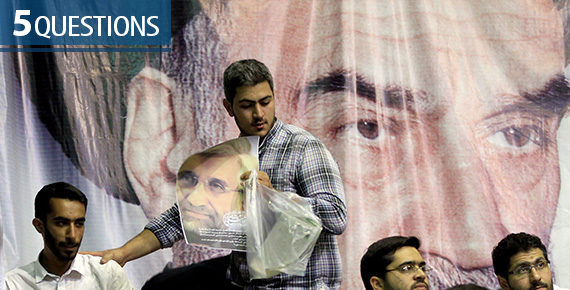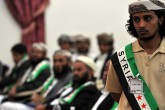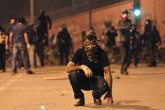1. According to which criteria, did the Guardian Council approve the eight candidates in the ballot scheduled for June 14 and what are their political stances?
As it is known, one of the most critical turns in the presidential election in Iran is the announcement of the nominated candidates following the Guardian Council’s evaluation. A total of 686 candidates registered for the June election, only eight of whom were approved and the others were rejected by the Council. Of course, it is better to tell that not most of the candidates expected to become nominated and that they applied for a PR practice in a way. Therefore, one should know that there were only a few controversial names among the rejected nominees. With this information in hand, we can look at according to which criteria candidacies were approved. First of all, let’s look at the presidential requirements in the Constitution of the Iran Islamic Republic. According to the Article 115 of the Constitution, the candidates should be Iranian descent citizens with no criminal records, reliable, pious believer, and prudent administrators, religious and political figures dedicated to the fundamental principles of the Islamic Republic and to the official sect of the country. It could be clearly seen that most of these requirements are open to subjective evaluations. In other words, who satisfies the criteria of prudence, reliability, being a believer or pious or even a political figure can easily be speculated. Under these circumstances, the approved candidates are those whom the Council believes they satisfy the eligibility criteria. For this reason, presidential nominees or the rejected names have almost always been the subject of discussions during election terms and the Council has been often accused of not acting fair but political. As the political stances and the political affiliations of the candidates are analyzed in the on-going election period, it will be easier to understand according to which criteria they are chosen.
The eight candidates are from three different groups: Conservatives, reformists and independents. Saeed Jalili, Gulam Ali Haddad Adil, Mohammed Bakir Khalibaf and Ali Akbar Valayati are the conservatives. Mohammed Reza Arif and Hassan Rouhani are known as reformists. However, Rouhani is also close to the conservative group. Mohsin Reza and Sayyid Mohammed, on the other hand, are independent candidates. An overall evaluation of the candidates reveals the fact that the conservative candidates would withdraw from the race in favor of another candidate, and the reformist, and independent candidates consist of those who are less likely to be elected. Therefore, it could be comfortably said that the system wishes to proceed with a conservative president-elect and the first name that comes to the fore at this point is Saeed Jalili. The public believes that Jalili is the Ayetollah Khamanei’s candidate, so he would receive the conservatives’ support. This would be interpreted as that Khamanei plans to take the executive body under his control because Jalili seems as a person who will follow the program of the Guardianship rather than having his own agenda. In fact, it could be said that although Jalili attended the talks held with the West over the Iranian nuclear program, Khamanei conducted the talks. On the other hand, if we keep in mind the fact that Jalili’s being the chief negotiator, it would not be a surprise if Iran would officially begin talks with the US during Jalili’s term as the president; and of course, in this case, we are talking about a negotiation period controlled by the religious leader directly.
2. Why were quite assertive names about the presidency such as Rafsanjani and Mashaei rejected by the Council? What would the consequences be of these rejections?
There are two nominees who would change the election results if they had been approved by the Council. Esfandiar Rahim Mashaei is one of them and the other is Hashemi Rafsanjani. In fact, the rejection of Mas



